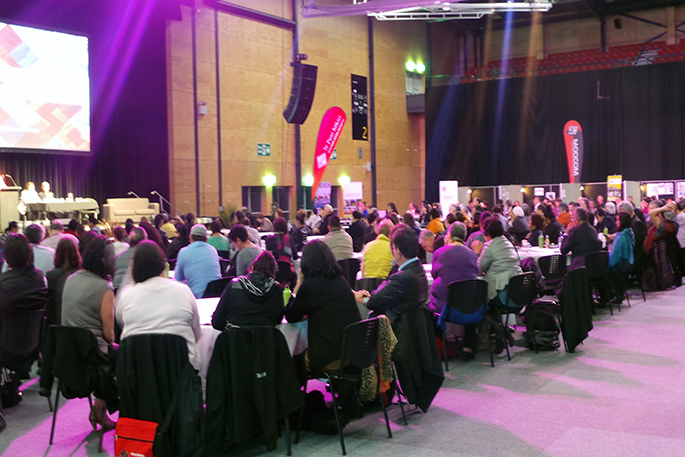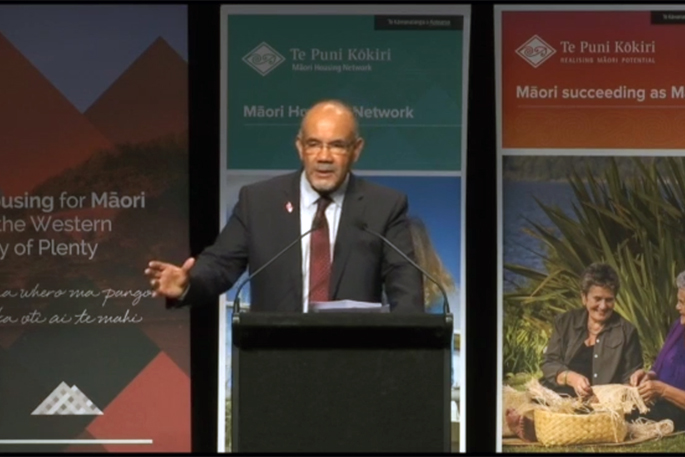Several positive outcomes resulted from the National Māori Housing Conference Committee held at ASB Baypark Arena in Tauranga Moana earlier this year.
The Tauranga Moana National Māori Housing Conference Committee has released its strategic report on the conference proceedings and outcomes, says committee chair Puhirake Ihaka.
'Our focus was to ensure the significant data from the conference was captured in a way that would encourage the positive momentum of finding solutions to assist more Māori into affordable housing.”
Strategic workshop sessions held during the conference were designed to develop effective strategies to inform housing agencies and Government ministers in the Housing space.
A key action initiated at the end of the conference was the formation of a temporary, inter-rohe (district) working committee to continue to start further discussions with government agencies on how to improve collaboration.
The committee will now coordinate with Te Puni Kokiri as a lead agency to form a working committee to identify and develop strategies for better inter-agency delivery of services and resources for Māori housing in response to national Māori Housing Strategies.
It will also seek ongoing support from Te Puni Kokiri for the next conference and the succession and transfer of knowledge from the Conference Organising Committee to the new organising committee from Waikato-Tainui.
'The Tauranga Moana National Māori Housing Organising Committee would like to acknowledge those who participated in the conference, the delegates and the keynote speakers and facilitators who shared their vision, experiences and knowledge in housing.”
To read the report in full or to watch video footage of speaker presentationsvisit: www.maorihousingconference.nz
OUTCOMES, REQUIREMENTS AND STRATEGIES IDENTIFIED IN THE REPORT:
- Strategic collaboration and good relationships with all stakeholders and key players. A strong Māori housing sector voice is needed to influence central government policy change and streamline or expedite processes, drive the Māori Housing Strategy and bring about changes to increase the availability and accessibility of tools to develop Māori land, housing and/or enable Māori home ownership.
- Practical collaboration between local authorities, Te Puni Kokiri, architects and builders, land Trusts and whānau to realise whānau housing aspirations.
- Good education, information and navigation through bureaucracy and central and local government systems for whānau. This includes using best project management practices for housing projects. The Western Bay of Plenty Sub-Regional Joint Agency Group model was considered a good model to roll out to other regions.
- Good communication within Trusts and their shareholders, and between whānau members, and the utilisation of technology to assist in communication.
A mechanism for the systematic sharing of stories including what works, and what doesn't work, sharing of information and resources including databases of professionals and experts in ways that are accessible to all whānau.
 Photo: Ryan Wood.
Photo: Ryan Wood.



0 comments
Leave a Comment
You must be logged in to make a comment.